Jill Baumgaertner & Liviu Mocan
Jill Baumgaertner: Poems
Liviu Mocan: Sculptures
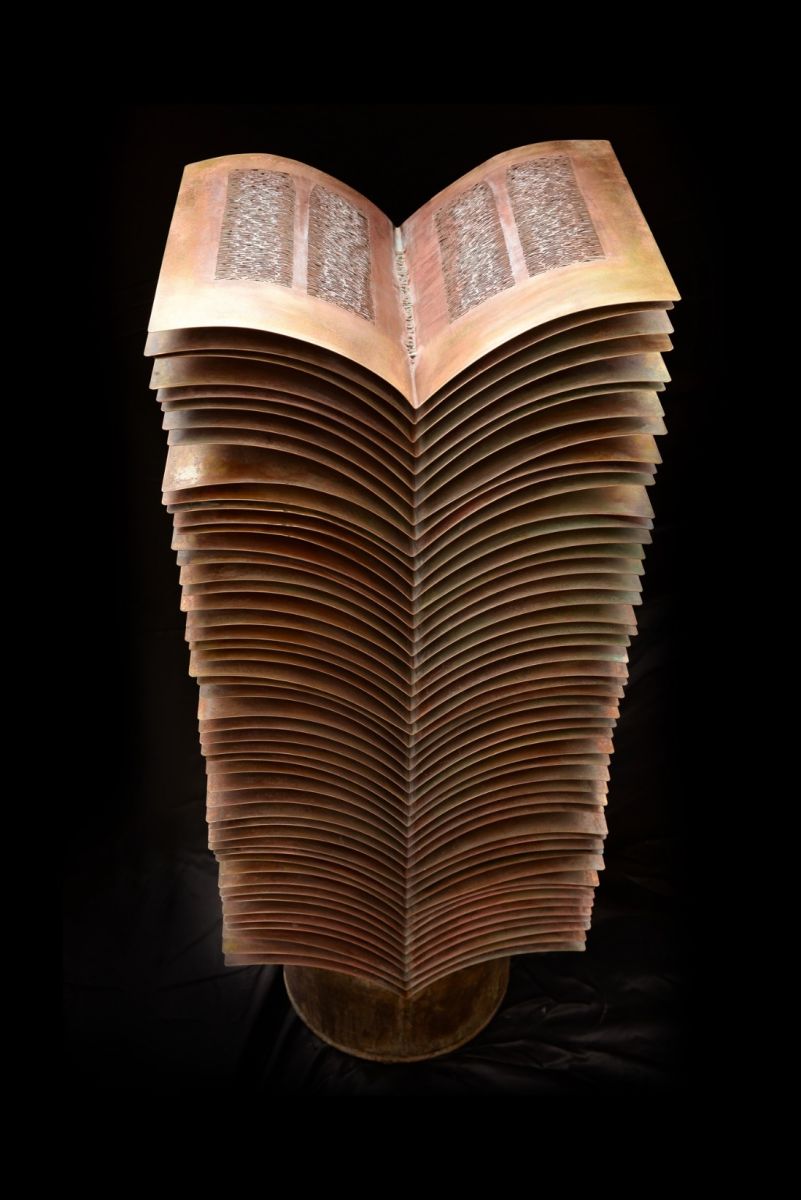
The book that reads you
sees you, you standing there
trying to read its opaque pages
stiff, unbendable they seem
yet stacked with an abundance
of breath between leaves and brass
that seems almost flexible.
It eyes you. Over and over
through its hieroglyphs the tiny eyes
see all that you are, all that you
should be, all that you will be.
They are not meaning but point
to meaning, harbingers, reflectors,
like the light from the moon,
not sun but still sunlight
reflected yet substantial,
until the morning erases
dark illuminations and unveils
glory, revelation the patina
covering sheen in the skin
of mercy.
**
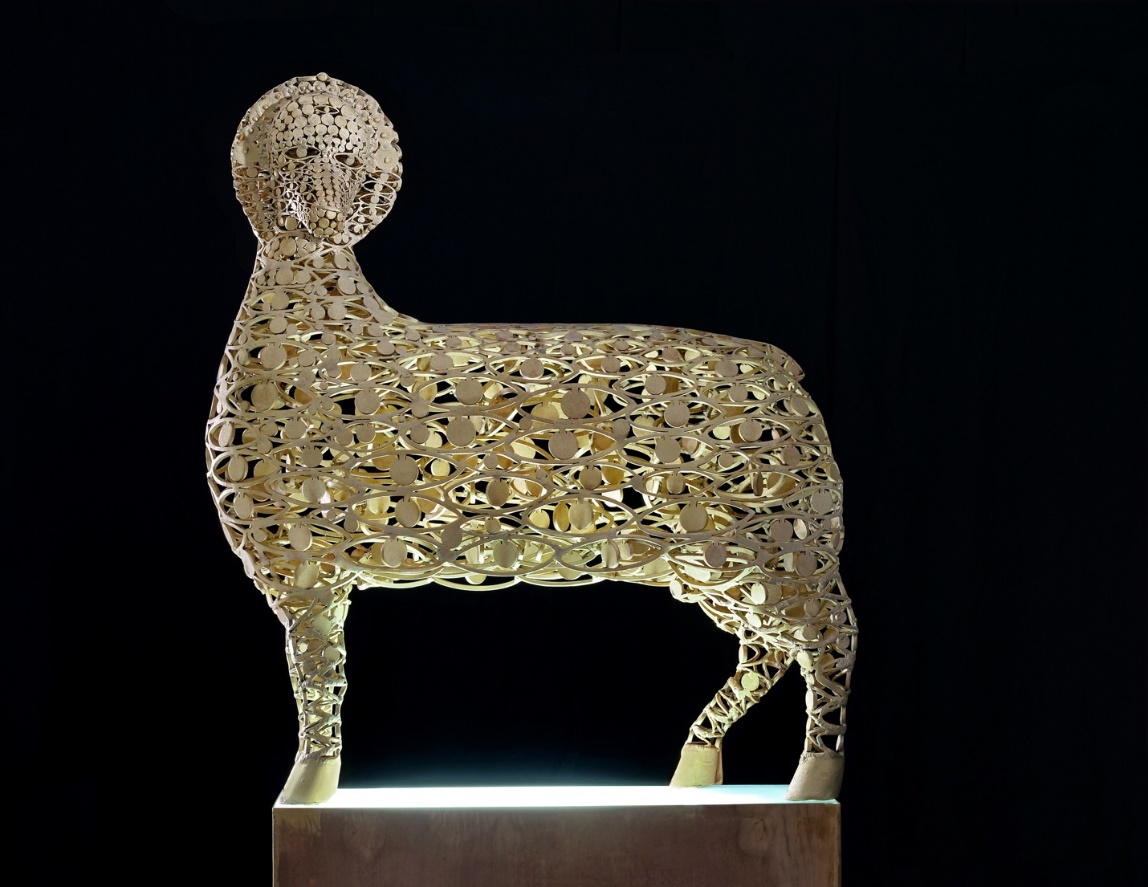
The lamb of God
is a curl of eyes and a dagger
in its breast, blanketed
with the pulse
of copper and zinc
cool to the touch.
The warmth of wool
is not for the present.
Upright, fraught with intention,
its head turned
to see all, each eye firm
to what comes next.
A lamb knows consumption
and hunger satisfied.
It is tender with love
and tough with pain. It looks
at us with its neck twisted,
its body erect and ready.
Seeing all in its calm gaze,
wise to our futile actions,
knowing we cannot do it
ourselves.
The lamb will do it.
**
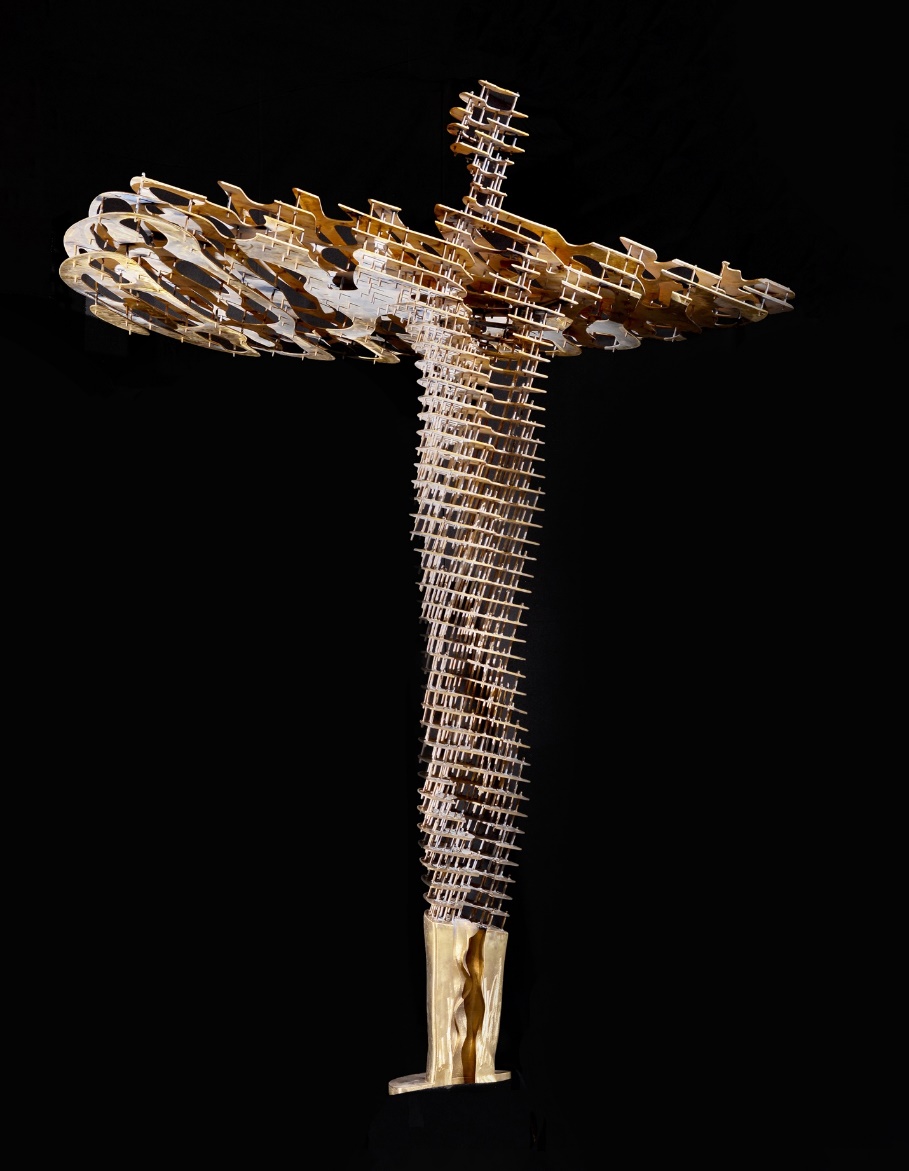
The ladder of the world
has 49 layers of brass
and 365 rods. I climb
slowly, searching finger
grips and toe holds.
It is hard, this ascent,
but my grasp is not
the point. Christ
is steady. He does
not swerve. His toes
anchor earth. Ramrod
straight he is more
than a link.
He is vertical
and horizontal,
encompassing all—
arms stretched
to hold my cling.
This Christ does not
hold gently.
He is all angles
and corners, stiff,
unmoving. The ladder
is sharp
and painful.
But this rigid God
Is no idol. Nor is he
Immovable.
With his bludgeoned
arms he reaches
the reluctant,
the recalcitrant,
the unmoved.
He reaches.
We stretch.
The climb is not
what gets us there.
**
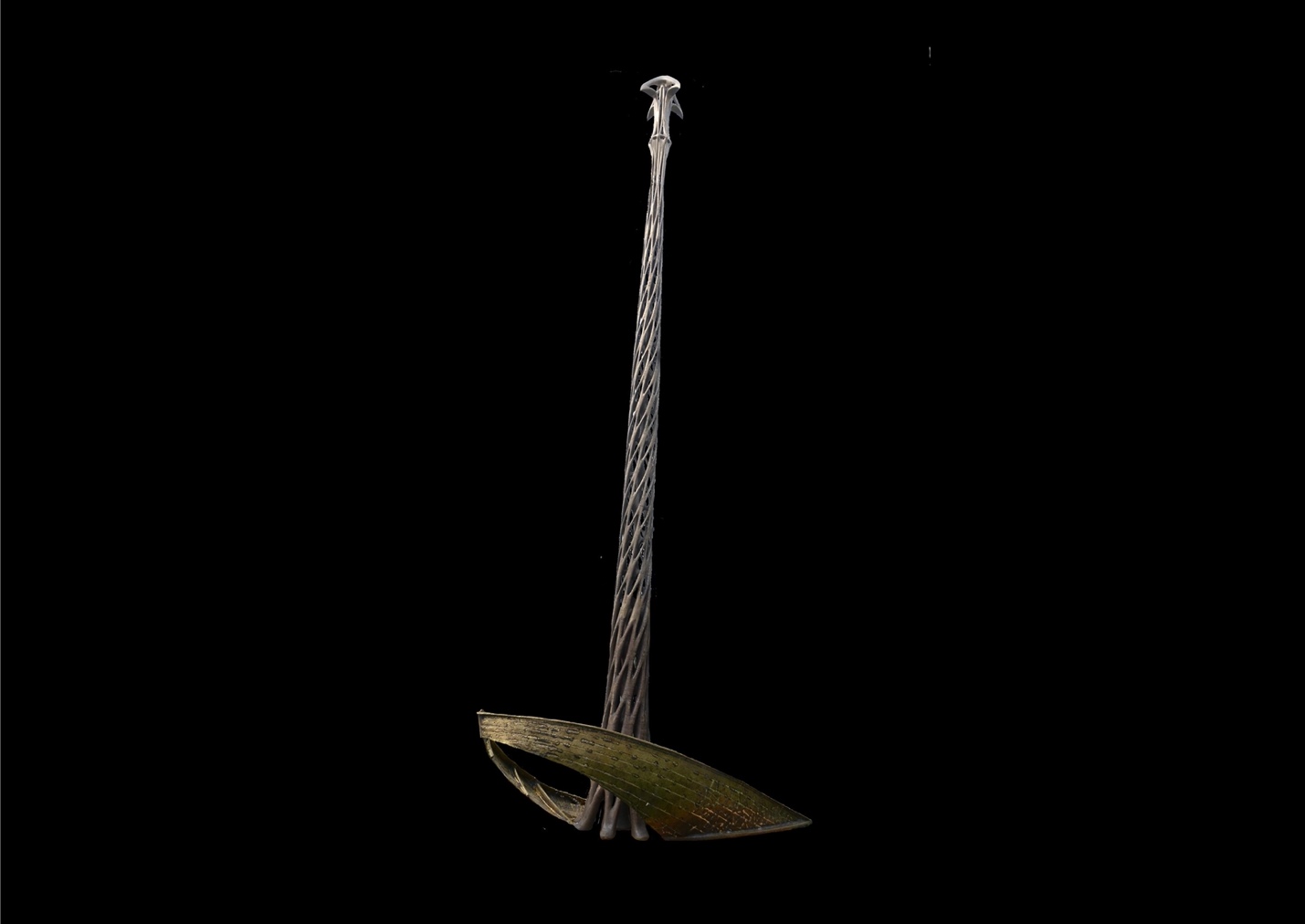
Anchor cast up to heaven
In this case, gravity is irrelevant.
Without this anchor, stretched to heaven,
the wrecked boat would sink,
chained to the depths of sin,
its fragile skin, broken,
the waters a gush of drowning.
But firm, straight, this rope.
The boat as delicate
and wind-tossed as paper,
or freshly dried hair.
Who cast this could shape it only
when it was hot-dipped galvanized,
drop-forged, hammered red and smoking.
Who threw it higher than air,
and who is tugging it upward, upward,
the vessel, all of us,
at the end of the rope?
Only nails hammered could do it,
forged for one who cried, finally,
It is finished.
The finish our beginning.
**
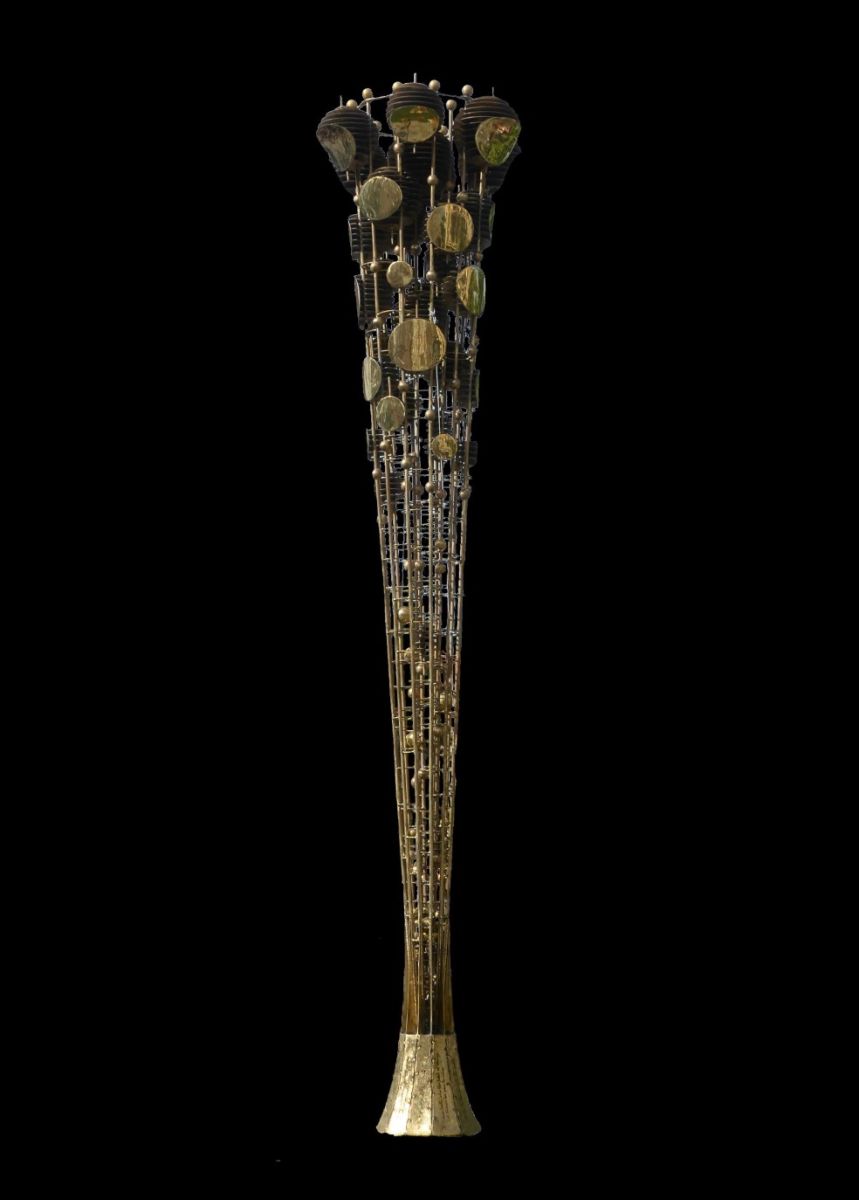
The Trumpet in the Universe
Soli Deo Gloria
The trumpet, however, stands
eighteen feet high outside the performance
hall, a glory of brass whirls
and small spheres climbing rods,
like atoms merging, molecules of
planets, the trumpet a mouthpiece
for which voice?
It is only this trumpet,
its first making steadied by scaffolding
but now standing free. Silent
but at any moment music
could erupt connecting worlds.
You have fed us with the bread
of tears, you have given us
bowls of tears to drink.
The news feed a monotone of scandal.
After so much repetition, hardly scandalous.
We drift into complacencies,
safe from dire diagnoses (10% cure rate
after 5 years), intentional murders,
and random, politicians’ lies, lost
aircraft, the gutter a blank margin
between facing pages. Or so we think.
Is there really an escape? God’s voice
in the trumpet or in the small silence?
And joy, always a surprise. Will it
splash fire flaring blaze
into corners dark with sorrows?
***
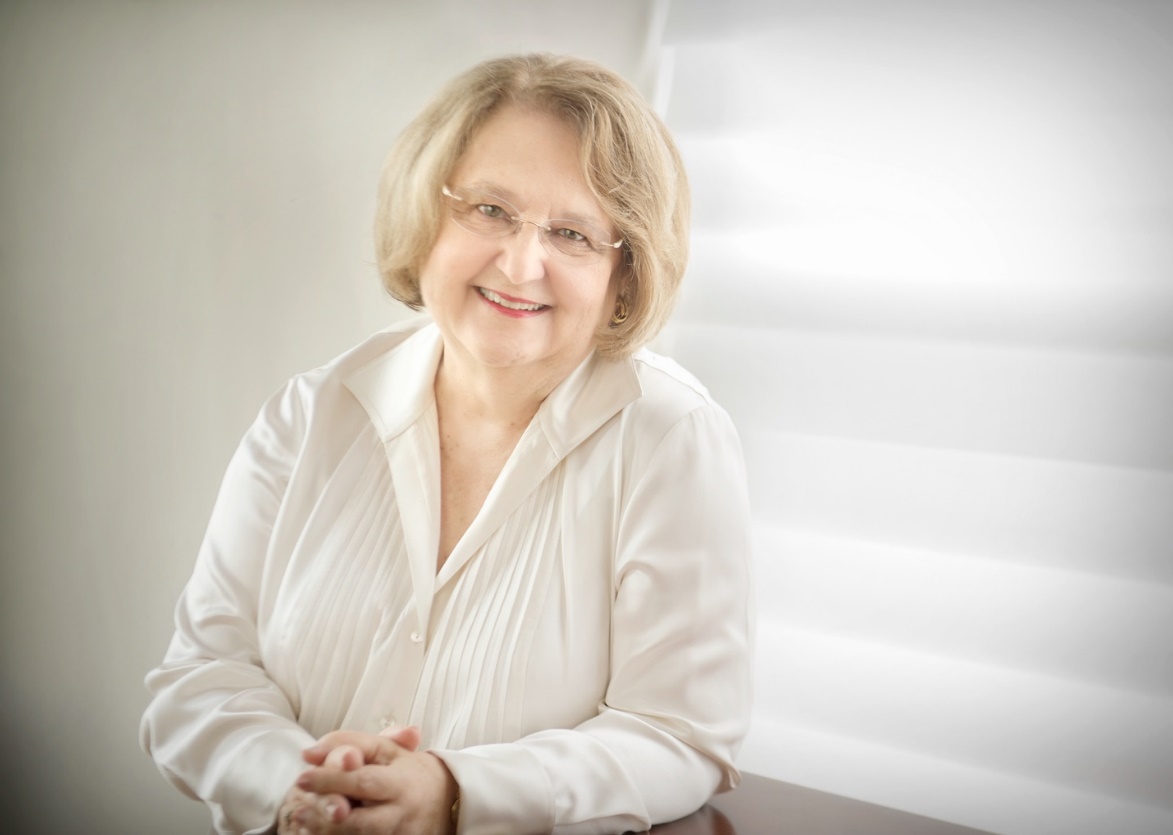
Jill Peláez Baumgaertner is the author of six collections of poetry, including the recently published From Shade to Shine: New Poems. She has also edited a collection of poetry, Imago Dei: Poetry from Christianity and Literature; written a textbook/anthology, Poetry; and published Flannery O’Connor: A Proper Scaring, still in print after thirty years. Taking Root in the Heart, an anthology of poetry from the Christian Century will be published in 2023. She was a Fulbright fellow to Spain, was nominated for a Pushcart Prize and is the winner of the White Eagle Coffee Store Press’s poetry chapbook contest, the Goodman Award, an Illinois Arts Council Award, the Illinois Prize of the Rock River Poetry Contest, and the CCL Midwest Poetry Contest. She has served as the poetry editor of The Cresset and First Things and currently serves as poetry editor of The Christian Century. She is also past president of the Conference on Christianity and Literature and is Professor Emerita of English and former Dean of Humanities and Theological Studies at Wheaton College. She has written song texts and libretti for composers Carl Schalk, Michael Costello, Richard Hillert, Daniel Kellogg, Shawn Okpebholo, and most recently for Michael Gandolfi. Their Cantata, based on Psalm 139, was performed by the Boston Symphony Chamber Orchestra. After her retirement from Wheaton in 2017 she returned for a term as Acting Provost and retired once again in 2018. She has two children—Anna, a teacher and professional violinist, and Martin, a video and film producer, and four grandchildren. She and her husband, Martin, a retired judge, lived in Oak Park and River Forest for twenty five years before moving into Chicago in 2003. http://www.jillbaumgaertner.com
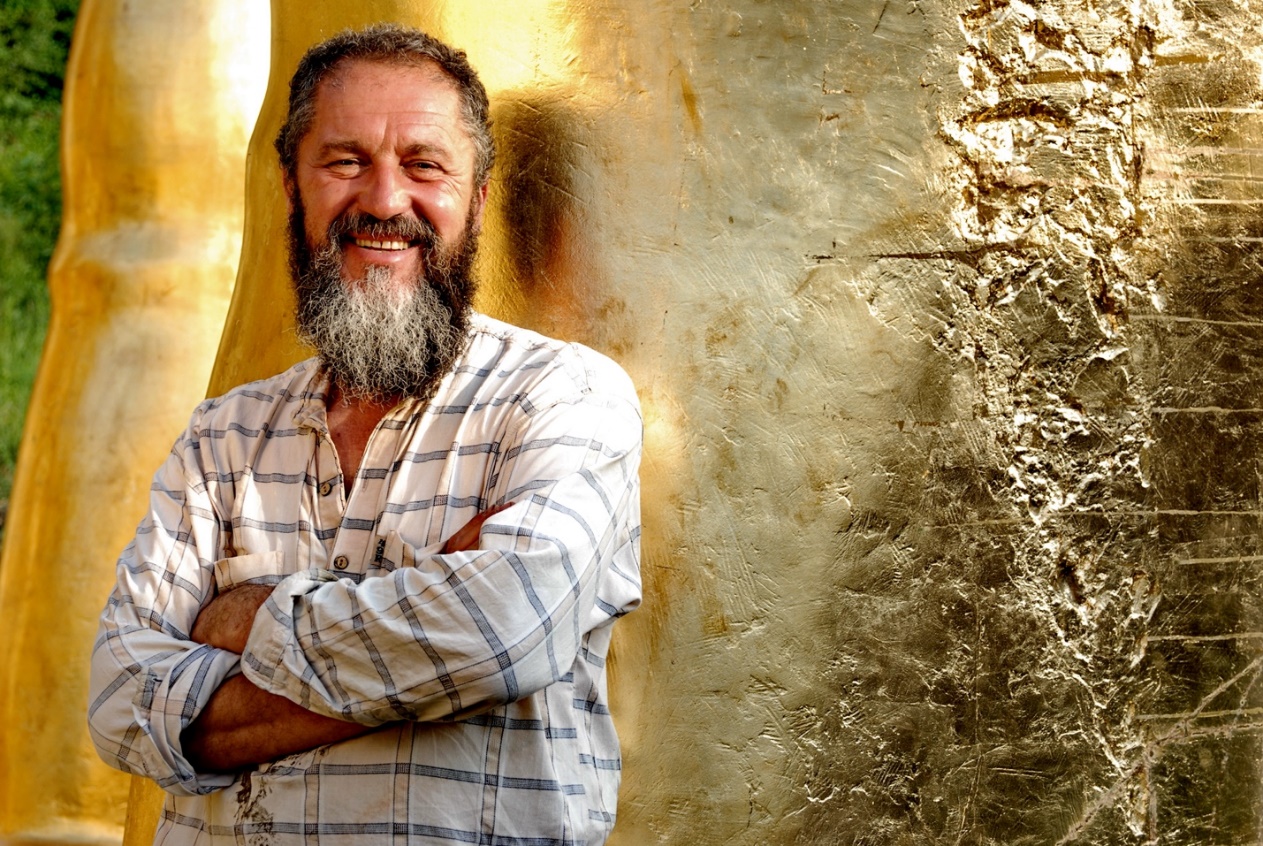
Liviu Mocan was born into a farming family in 1955, in the Romanian village of Cara. When the communist regime confiscated their animals and lands, his parents Valer and Ana decided to invest in their three children’s education instead, so in 1961 they moved to the city of Cluj-Napoca.
From an early age, Liviu began to develop his artistic talent, on a journey that took him through art high school and on to the Academy of Visual Arts in Cluj-Napoca, where he graduated in 1991.
Soon after, he took up a post as artist-in-residence at two different universities in North America, before returning to Romania in 1993 where he continued to study, create and teach sculpture.
For his professional development, Liviu undertook numerous study trips to some of the most important global centres of art. This contributed to his reputation internationally, and up to now he has been invited to present his work in exhibitions across 21 countries.
Liviu has permanent public sculptures displayed on four continents, and lives with his family in Cluj-Napoca, where he continues to work as a studio artist. https://www.liviumocan.ro/


